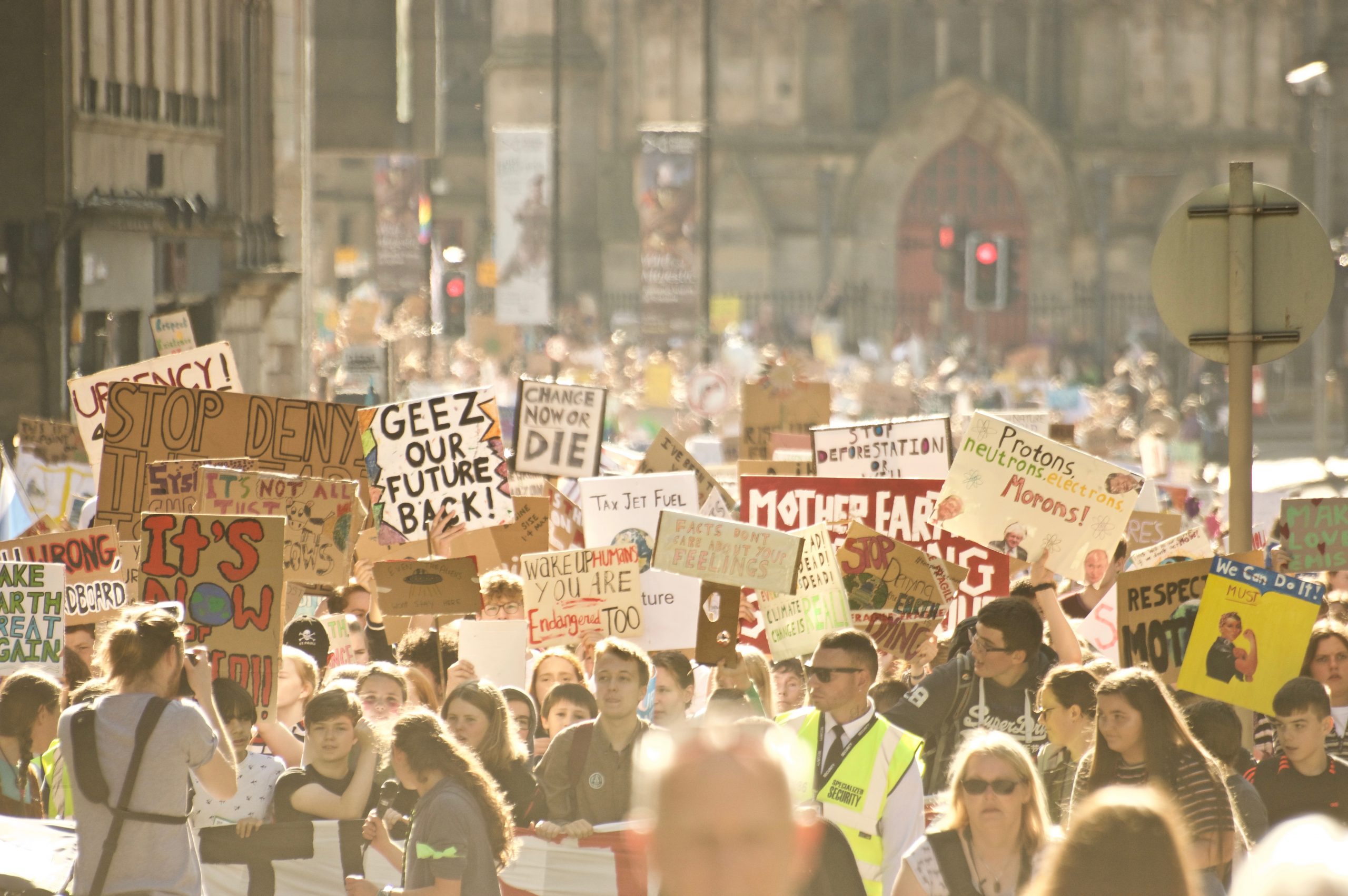
FoE Scotland response to Dart Energy criticisms
Commenting on Dart Energy’s press release criticising a number of groups who have objected to their planning application for coalbed methane extraction at Airth, Friends of the Earth Scotland Campaigns Co-ordinator Mary Church said:
“It seems to come as a surprise to Dart that Friends of the Earth are opposed to fossil fuel extraction, but this is hardly a revelation.
“Dart seem so confused about who they have invited to meet and when, they really shouldn’t be throwing accusations around like this.
“Dart still appear to be refusing to rule out whether future plans in the Airth coal bed methane field would involve fracking. They also admit that the Government’s proposal on buffer zones could destroy their scheme.”
Friends of the Earth thinks that this proposal should be thrown out and calls on the Scottish Government to ban all unconventional gas activity.
ENDS
Notes to Editors
1. In a letter dated 19 June 2013 Dart wrote to the FoE Scotland Chief Executive (a post that no long exists, Richard Dixon is Director) stating:
“As you know, on several occasions you have declined our invitations to come and visit the site and our exhibition”
Our Director Richard Dixon responded on 25 June:
“You claim that you have invited me on several occasions to visit your site and exhibition. Since I started as Director of Friends of the Earth Scotland in January 2013, I have received no such invitations from you, nor any communications from Dart Energy apart from your letter of 19 June.”
2. Australian company Dart Energy is the leading unconventional gas developer in Scotland. Canonbie is one of its two most advanced sites, and while still in the testing stage, has planning permission for wells at 19 sites. Dart inherited a number of permits to carry out hydraulic fracturing when it bought out Greenpark Energy’s Canonbie assets in December 2011. One of these licenses is for a site at Mouldyhills where no wells have been drilled, the other, for wells at Broadmeadows, has a number of conditions attached to it that would require improvements to be made to the integrity of the wells.
3. Dart’s flagship development at Airth, near Falkirk faces strong community opposition and has been beset by delays. Dart recently appealed their application for 22 new wells, a gas and water treatment facility and a network of pipelines to the Scottish Government on grounds of non-determination. This application will be the subject of a Public Local Inquiry later this year.
4. Dart Energy has pulled out of its Australian ventures following a ban on all unconventional gas activity – not just hydraulic fracturing – within 2km of residential areas introduced by the New South Wales Government. http://www.resources.nsw.gov.au/__data/assets/pdf_file/0008/458018/TOUGH… A conservative estimate suggests there are at least 2,000 homes within 2km of Dart Energy’s Airth development. If a similar ban were in place in Scotland Dart’s development at Airth could not go ahead.
5. The industry in Australia estimates that up to 40% of coalbed methane wells will eventually be fracked. See Australian National Greenhouse Accounts, Coal Seam Gas Estimation and Reporting of Greenhouse Gas Emissions 2012, http://www.climatechange.gov.au/climate-change/emissions/~/media/climate…
6. Methane is a highly potent greenhouse gas that over its short lifetime is over a hundred times more damaging to the climate than carbon dioxide. Research indicates that unconventional gas could be worse in climate terms than burning coal because of methane leakage from gas fields. Seehttp://www.eeb.cornell.edu/howarth/Howarthetal2012_Final.pdf from Cornell University and http://www.nature.com/news/methane-leaks-erode-green-credentials-of-natu… from the National Oceanic and Atmospheric Administration (NOAA) who found that 9% of total gas production at a field in Utah was leaking into the atmosphere.
7. An investigation by a GP in early 2013 of 38 households in close proximity to coal seam gas wells in Tara, Queensland, found that 58% of residents reported definite adverse health effects related to gas drilling and a further 19% were uncertain. Symptoms include breathing difficulties, rashes, joint and muscle pains, nausea and vomiting, and spontaneous nosebleeds. See http://d3n8a8pro7vhmx.cloudfront.net/lockthegate/pages/49/attachments/or…
8. Bans and moratoria around the world
France: A nationwide ban on fracking
Switzerland: A moratorium on fracking was introduced in the canton of Fribourg
Germany: Moratorium in Northrhine-Westphalia on fracking. Lower Saxony likely to do the same.
Bulgaria: Government banned fracking
Czech Republic: A moratorium on fracking, considering outright ban
Spain: Cantabria banned fracking, La Rioja is also currently considering same
Netherlands: Moratorium on unconventional fossil fuels
Denmark: Moratorium on fracking
Quebec: A moratorium on fracking
United States: Vermont banned fracking, and New York has moratorium
New South Wales: ban on any coal bed methane activity within 2km of residential areas, and within critical industry clusters such as winegrowing areas
Ireland: 2-year moratorium on fracking
9. Friends of the Earth Scotland is
* Scotland’s leading environmental campaigning organisation
* An independent Scottish charity with a network of thousands of supporters and active local groups across Scotland
* Part of the largest grassroots environmental network in the world, uniting over 2 million supporters, 77 national member groups, and some 5,000 local activist groups – covering every continent. www.foe-scotland.org.uk
